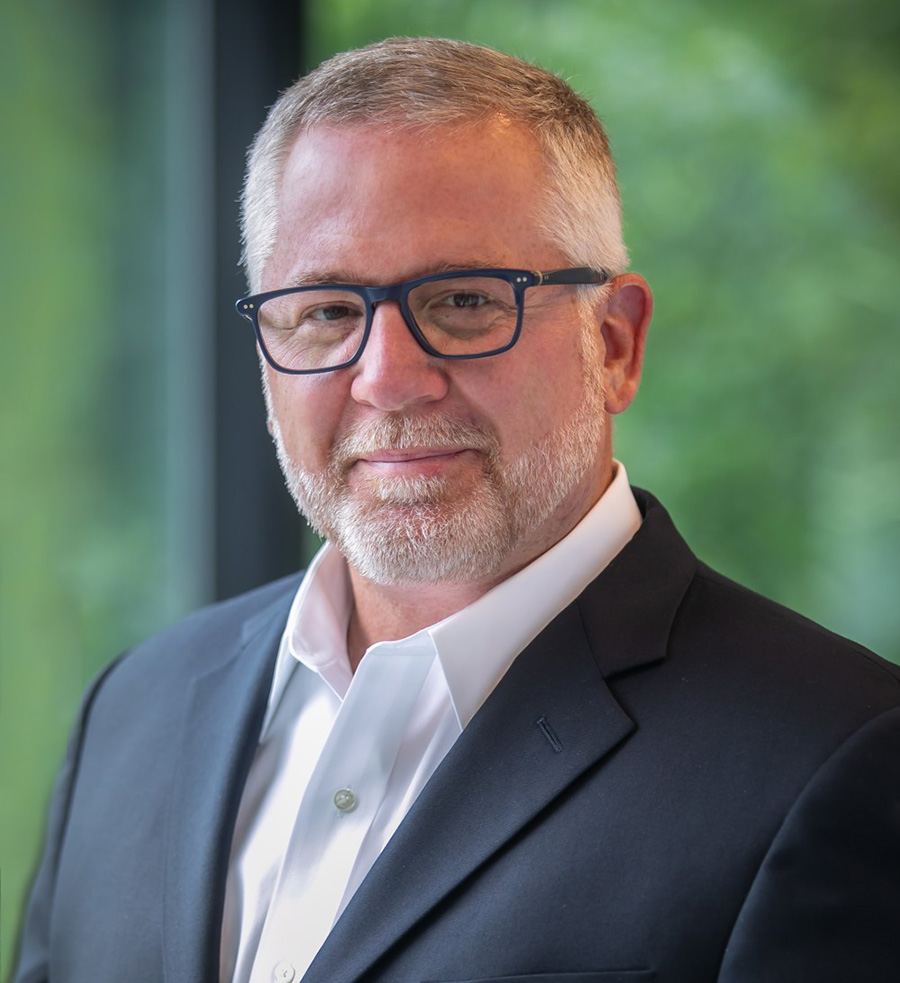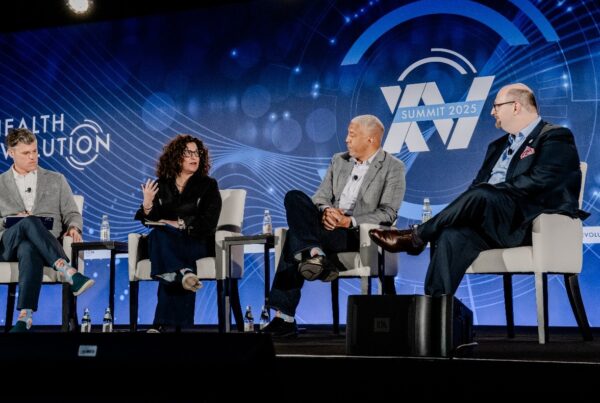Brent Ragans stepped into the president role at Ferring Pharmaceuticals USA in June after serving as the company’s U.S. chief commercial officer. That was not only in the middle of a pandemic but also at a time when so-called “non-essential” health care was ground to a halt because of COVID-19.
The multi-billion dollar Swiss-based company, which specializes in reproductive medicine, maternal health, gastroenterology, orthopedics, and urology, saw some interruptions in clinical trials and dealt with infertility clinics shutting down for a few weeks.
Now that many clinics have resumed activities, the demand for reproductive medicine is overwhelming, Ragans says, although that could slow down again if more states put a hold on “non-essential care.” He adds that these dramatic stops and starts occurred in gastroenterology and orthopedics too. Embracing these challenges is all part of a unique year for health care leaders across the industry.
 Health Evolution spoke with Ragans about adapting through the challenges of COVID-19, microbiome development, how he leads through uncertain times, and much more.
Health Evolution spoke with Ragans about adapting through the challenges of COVID-19, microbiome development, how he leads through uncertain times, and much more.
Health Evolution: Having taken the position of president, how have you adapted to remote work and the other changes brought upon by the COVID-19 pandemic?
Ragans: Employees have adapted better than I have. I’ve been quite impressed with how the organization has adapted. For us, the first thing we did was to ensure we could produce our medicines for patients. I’m happy to say we had no interruption of production in the U.S. or anywhere else during the pandemic.
When you move to other areas of the business, there were some interruptions. For instance, we had interruptions in clinical trials. Those are more or less back online. Commercially, it’s still an ebb and flow. We’re trying to get in front of our customers and ensure they have everything they need, working in a mix of both remote mediums and face to face. Essentially, we’re following the pandemic as it moves along. We’ve adapted well operationally. As I said, our strategy remains unchanged. In fact, I’d say in these times, it’s probably even more important to focus on your strategic priorities.
Health Evolution: And what are the unique challenges of managing an organization focusing on what was considered “non-essential” in the early stages of COVID-19?
Ragans: We never accepted the fact that our services were non-essential. Infertility is a disease, at least as it relates to that specific area that’s been borne out by physicians and patients. Most of our medications require physician intervention, so at the beginning of the pandemic these infertility clinics were not open. We helped them work through that. The demand has been overwhelming since they have resume activities. They’ve been able to manage through this quite well. It’s not just reproductive medicine either, other therapeutic areas we deal with, orthopedics and gastroenterology have also seen this happen as well.
Health Evolution: How are you ramping up to meet the demand that’s come from the end of the quarantine?
Ragans: There are areas where we’ve had to increase our manufacturing capacity to ensure we can meet the demands of the market. There are other commercial pressures that have required that we adapt to a marketplace that is trying to deal with the back end of the pandemic.
I think we’ve done a good job of managing through that and ensuring the patients get what they need, and our customers are serviced in a way they want to be serviced. Coming out of the initial quarantine, there was a lot of pressure on the organization. As we are in an uncertain time but one that’s a little less connected to the initial quarantine, it’s enabled us to find a good rhythm in the way we interface with patients and ensure we have appropriate supply.
Health Evolution: How have you been preparing for the coming wave?
Ragans: First off, just a commentary – I think we’re in for it. The pandemic has already gone on longer than [many people] anticipated and the positivity rates are hitting new record highs, which obviously is disappointing.
For us, [the recent surge] is hitting in an uneven way, but we feel we’ve got a good plan that has already been executed multiple times. As long as we stick to our priorities, we’ll be good. We have to ensure the safety of our employees and patients, first and foremost. We have to ensure we can supply product to the marketplace. We’re already seeing changes in protocols of how we interface with customers. We’ll adapt, as we’ve been doing thus far. In general, I don’t see anything that’s radically going to change in the way we approach this. It maybe just more magnified than it was before.
Read more: The politicization of vaccines and public health illustrates the depth of inequities
Health Evolution: How do you personally lead through uncertain times?
Ragans: It starts with authenticity. First and foremost, no matter who you are interacting with—employees or someone outside your organization—with people questioning everything these days you have to be straight with them. I think being authentic is the most important trait and that’s especially true in uncertain times.
Second, I think it’s on me and the organization to ensure we have a stated clarity of purpose, so people understand where we’re going and that we have a plan to get there. Lastly, you need discipline around your strategy. When you’re in uncertain times, the best thing leaders can do is focus on strength areas. To me, it’s always reverted back to the discipline of staying on strategy.
Health Evolution: What are the large initiatives Ferring is working on for the future?
Ragans: For us, our strategy was clear prior to the pandemic and it’s largely unchanged. We’re focused on expanding our leadership in reproductive medicine and maternal health. Whether it’s a scientific standpoint or a commercial one, that has been a priority and continues to be one.
We’re also expanding into the new area of microbiome [development]. We hope to have the first FDA approved microbiome origin in the near future. That’s been super exciting for us and a new area of scientific discovery and a priority.
Lastly, in these times, ensuring engagement of our employees during what is quite a different situation, one that none of us have faced before. Those are the main priorities.
Health Evolution: What closing advice do you have for CEOs and health care executives?
Ragans: Stay close to the things that matter most to your organization, customers, and patients. Minimize the noise. There is a lot of noise in all of our lives right now. It’s incumbent on leaders to try cut through the noise and focus on what matters the most.
And put your people first. They will amaze you. I have been so impressed by our organization and its ability to adapt to all of the different things that have transpired over the past nine months. As a leader, put faith in your people.










